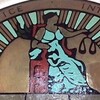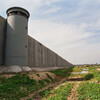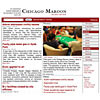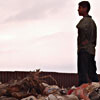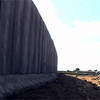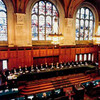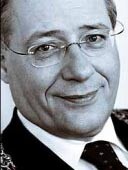
Israel angry at mayor of The Hague
22 February 2004
The mayor of The Hague, Wim Deetman, said on Dutch TV that the Israeli embassy in The Hague is contradicting his responsibility to maintain public order during the oral hearings of the International Court of Justice on the legal consequences of the wall this week. The Israeli embassy has been coordinating protests and provided the pictures of 927 Israeli victims of suicide bombings to the Zionist-Christian organizations “Christenen voor Israel”. Deetman has argued that the provocative use of pictures will disrupt public order. The Israeli Foreign Ministry immediately issued a statement against the mayor. Read more about Israel angry at mayor of The Hague
